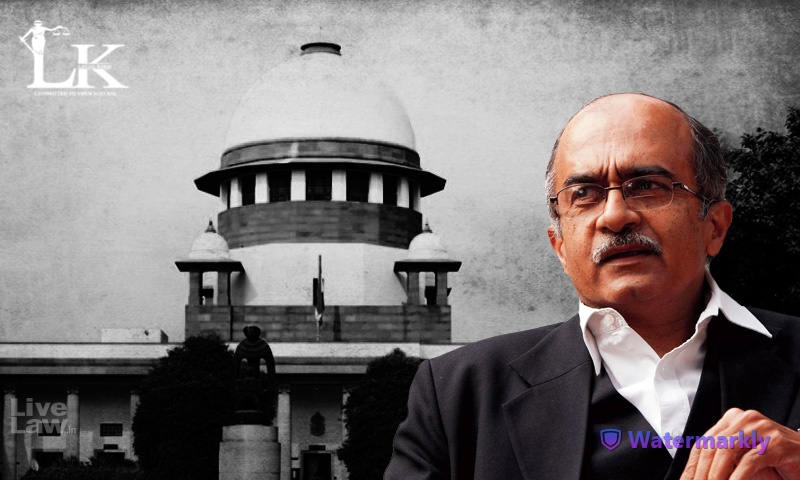Supreme Court to hear Petition for “Intra-Court Appeal” in Contempt Cases.
On Monday, April 17th, 2023, the Supreme Court of India will hear a petition filed by prominent lawyer, Prashant Bhushan, along with other lawyers, Nilesh Ojha, Vijay Kurle, and Human Right Activist Rashid Khan Pathan, seeking the creation of an “intra-court appeal” mechanism in cases of contempt of court. The bench, consisting of Justice Sanjiv Khanna and Justice M.M. Sundresh, will hear the case which is listed at Sr. No. 44. The petitioners have requested that the matter be referred to a Constitution Bench, as they believe it raises questions related to the interpretation of the constitutional mandate.

The issue at hand is the conflicting decisions of the Supreme Court in cases of conviction, sentence, and detention of individuals such as Subrato Roy Sahara, Zahira Shaikh, Perry Kansangra, etc., which the petitioners argue are beyond the scope of Section 12 of the Contempt of Courts Act, 1971, and are a clear violation of Article 20(1) of the Constitution and Article 15 of the International Covenant on Civil and Political Rights (ICCPR).
Mr. Nilesh Ojha, in his written submission, has pointed out that despite the fact that the constitutional validity of the Contempt of Courts Act, 1971, has been upheld by larger benches of the Supreme Court, some benches are still following judgments that have been overruled, resulting in confusion amongst lawyers, judges, and the general public.
Furthermore, the petitioner argue that it is the fundamental right of an individual to appeal against the order of conviction in contempt cases by the Supreme Court in its original jurisdiction, and the non-provision of such an appeal is a violation of Article 14(5) of the ICCPR, as well as Articles 14, 19 and 21 of the Constitution of India.
The petitioner have cited the recent judgment of the UK Supreme Court in the case of Her Majesty’s Attorney General vs. Crossland, which held that a person convicted by the Supreme Court under contempt in its original jurisdiction had the right to one appeal before larger benches. They have also referred to various other judgments, including those of the UN Human Rights Committee, which have condemned the imprisonment of individuals in contempt cases without the provision of an appellate jurisdiction.
In light of the conflicting judgments and the general public importance of the questions raised, the petitioner are seeking an authoritative pronouncement by a Constitution Bench of 7 or 9 Judges to clear the cloud.
In conclusion, the hearing of this petition is of significant importance, as it raises crucial questions related to the fundamental rights of individuals and the interpretation of the constitutional mandate. The decision of the Supreme Court will have far-reaching consequences for the legal system in India and its citizens.
